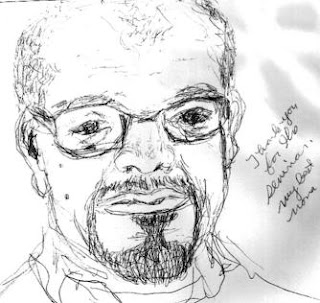A little video We put together a little while back. Jay Lopez does such good work with video.
What about Monday well today is going to be one of those days where all I do is hang out with my sons and perhaps make myself some great coffee which I' m mixing as I write. The beans are roasting and the smell in the house is incredible MMMMMM. You see I figured that buying my own beans and roasting them myself and then grinding them and brewing would be a job but it is worth it believe me my friends it is worth it.
Sometimes one has to see what one looks through the eyes of others to find out who you are as a person.
It is Monday and it is President's Day. What does that mean and why do we celebrate it? Is that not a good question of course it is. Let us look at this:
Who Knew?
Presidents' Day - What Does it Mean?
From Lauren Himiak, former About.com Guide
To some, the observance of Presidents' Day in the United States goes
very much unnoticed. Local newspapers splash ads of “President’s Day
Sales!” and many get the day off from work. But have you ever stopped to
think about this important day of recognition?
History
Presidents' Day is intended (for some) to honor all the American presidents, but most significantly George Washington and Abraham Lincoln. According to the Gregorian
or "New Style" calendar that is most commonly used today, George
Washington was born on February 22, 1732. But according to the Julian
or "Old Style" calendar that was used in England until 1752, his birth
date was February 11th. Back in the 1790s, Americans were split - some
celebrated his birthday on February 11th and some on February 22nd.
When Abraham Lincoln became president and helped reshape our country,
it was believed he, too, should have a special day of recognition.
Tricky thing was that Lincoln’s birthday fell on February 12th. Prior to
1968, having two presidential birthdays so close together didn't seem
to bother anyone. February 22nd was observed as a federal public holiday
to honor the birthday of George Washington and February 12th was
observed as a public holiday to honor Abraham Lincoln’s birthday.
In 1968, things changed when the 90th Congress was determined to
create a uniform system of federal Monday holidays. They voted to shift
three existing holidays (including Washington's Birthday) to Mondays.
The law took effect in 1971, and as a result, Washington's Birthday
holiday was changed to the third Monday in February.
But not all
Americans were happy with the new law. There was some concern that
Washington's identity would be lost since the third Monday in February
would never fall on his actual birthday. There was also an attempt to
rename the public holiday "Presidents' Day", but the idea didn't go
anywhere since some believed not all presidents deserved a special
recognition.
Even though Congress had created a uniform federal holiday law, there
was not a uniform holiday title agreement among the individual states.
Some states, like California, Idaho, Tennessee and Texas chose not to
retain the federal holiday title and renamed their state holiday
"President's Day." From that point forward, the term “Presidents' Day”
became a marketing phenomenon, as advertisers sought to capitalize on
the opportunity for three-day or week-long sales.
In 1999, bills were introduced in both the U.S. House (HR-1363) and
Senate (S-978) to specify that the legal public holiday once referred to
as Washington's Birthday be "officially" called by that name once
again. Both bills died in committees.
Today, President’s Day is well accepted and celebrated. Some
communities still observe the original holidays of Washington and
Lincoln, and many parks actually stage reenactments and pageants in
their honor. The National Park Service also features a number of
historic sites and memorials to honor the lives of these two presidents,
as well as other important leaders.


No comments:
Post a Comment